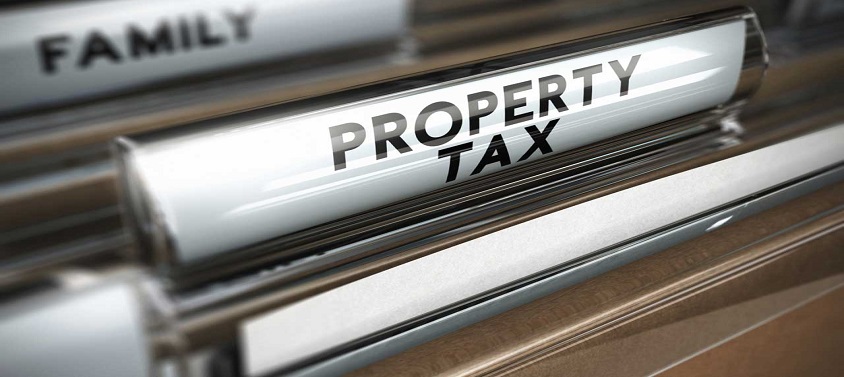When you purchase any property, you are bound to pay several taxes. There are some taxes such as Stamp Duty and Registration Charges are one time charges, the Property Tax is the one which you i.e. the owner has to pay every year.
We examine how and why the Property Tax is levied and how the owners are benefitted from paying this tax.
HOW TO CALCULATE PROPERTY TAX??
Property tax is the one which the owner of any property has to pay to the local body. It varies wrt to one location to the other along with various other under listed factors:
- Location of the Property
- Size of the Property
- The Property is ready to go or under construction
- Gender and Age of Property Owners ( discounts may be available for Female or Senior Citizens)
- Facilities Provided by the government bodies in the Locality
WHY DO YOU HAVE TO PAY PROPERTY TAX
There are various services provided by the local municipal body in the area where your property is located. It includes amenities like : cleanliness, water supply, maintenance of local roads, drainage and other civic facilities. The Property tax provides way to the municipal bodies to get revenue, funding for all the services it provides. This tax is the greatest source of revenue for the local municipal bodies. If the Property Tax isn’t paid, then you have to face the consequences such as: Refusal to provide water or sewage connection or any other services. It can also lead the municipal body to initiate legal actions, to recover the due amount.
IMPORTANCE OF PAYING THE PROPERTY TAX
Every municipal body conducts the property valuation and hence, the property tax is calculated accordingly. The property tax is to be paid by the owner of the property. And you need not worry if you are just a tenant.
The property tax receipt helps a lot to prove your ownership in case of any property disputes. So, as soon as you buy a property, get the property title updated in the municipal records. In order to do so, all the appearing arrears should be cleared. This will get the name of the property to be transferred to the new buyers. If you fail to do so, the name of the previous owner continues to show in the tax receipt.
Before you go to the local municipal bodies to get the property registered in your name, you need to produce certain documents to prove the ownership of the property. Some of the documents that you need to produce to get the property name updated can include: sale deed copy, clearance from the society, duly filled application, photo and address proof, copy of receipt of the last paid property tax, etc.
The property tax receipt acts as a key document in helping you to avail loans against your property. So, making property tax payments on time and keeping your records updated at the local municipal bodies is a must.
| There are some establishments such as places of worship, government buildings, foreign embassies, etc along with clean land are exempted from the property tax charges almost every time. |
|
PROPERTY TAX CALCULAITONS
Property tax in Pune
An online property tax calculator is provided by the PMC. It asks you to enter your details such as: Location, Area, Usage, Type, Total plinth area, Construction year and then in return, calculates the amount property tax to be paid by you.
Property tax in Bengaluru
For the calculation of amount of Property tax, BBMP follows a UAV (Unit Area Value) System as follows:
Property Tax (K) = (G – I) * 20%
Where, G = X + Y + Z and I = G * H/100
(G = Gross unit area value;
X = Tenanted area of property * Per sq ft rate of property * 10 months;
Y = Self-occupied area of property * Per sq ft rate of property * 10 months;
Z = Vehicle parking area * Per sq ft rate of vehicle parking area * 10 months;
H = Percentage of depreciation rate, which depends upon the age of the property)
Property tax in Mumbai
For the calculation of amount of Property tax, BMC follows a CVS (Capital Value System) as follows:
Property Tax=Capital value of property * Current property tax rate (%) * Weight for user category
Property tax in Delhi
For the calculation of amount of Property tax, MCD( Municipal Corporation of Delhi) follows the UAV (Unit Area Value) System as follows:
Property tax = Annual value * Rate of tax
Where
Annual value = Unit area value per sq meter * Unit area of property * Age factor * Use factor * Structure factor * Occupancy factor
Property tax in Chennai
For the calculation of amount of Property tax, GCC(Greater Chennai Corporation) follows the RLV (Reasonable Letting Value) System to calculate the annual rental value of your property.
The factors considered while assessing the property tax are:
- Plinth area
- Basic rate of the street in which the property is located
- Usage of the building (residential or non-residential)
- Nature of occupancy (owner or tenant)
- Age of the building
Property tax in Hyderabad
For the calculation of amount of Property tax, GHMC (Greater Hyderabad Municipal Corporation) adopts a system with slab rate of taxation for the residential properties. And the formula used to calculate the same is as follows:
Annual Property Tax = Plinth area * Monthly rental value per sq ft * 12 * (0.17 to 0.30) depending on MRV and based on slab rate of taxation – 10 % depreciation + 8 % library cess
Property tax in Kolkata
For the calculation of amount of Property tax, KMC (Kolkata Municipal Corporation) follows the new UAA (Unit Area Assessment) System as follows w.e.f March 2017:
Annual Property Tax = Base Unit Area Value * Covered space/Land area * Location MF value * Usage MF value * Age MF value * Structure MF value * Occupancy MF value * Rate of tax (including HB tax)
(Note: HB tax refers to Howrah Bridge tax, which is applicable on properties lying in specific wards.)
While calculating the property tax, KMC utilizes the concept of various Multiplicative Factors(MFs), which account for the critical differences in houses within the same block.
Property tax in Ahmedabad
For the calculation of amount of Property tax, AMC (Amdavad Municipal Corporation) calculates the Property Tax as follows:
Property tax = Area * Rate * (f1 * f2 * f3 * f4 * fn)
Where,
f1 = weightage given to the location of the property
f2 = weightage given to the type of property
f3 = weightage given to the age of the property
f4 = weight assigned to residential buildings
fn = weight assigned to the user of the property
Property tax in Gurugram
For the calculation of amount of Property tax in Gurugram, two factors are kept in mind: Area and Use( residential/non- commercial/ commercial). The most convenient way to make the tax payment in Gurugram is on the MCG ( municipal Corporation of Gurugram) website. Each property holder is provided with Unique Property ID number which you need to enter on the website and the website in return, displays the amount that you need to pay.
VARIOUS CITIES AND E-LINKS RESPECTIVELY TO PAY THE PROPERTY TAX
| City |
e-link to pay property tax |
| Greater Hyderabad Municipal Corporation |
https://ptghmconlinepayment.cgg.gov.in/PtOnlinePayment.do
|
| Pune Municipal Corporation |
http://propertytax.punecorporation.org/
|
| PCMC |
http://203.129.227.16:8080/pcmc/ |
| Navi Mumbai Municipal Corporation (NMMC) |
https://www.nmmc.gov.in/property-tax2 |
| Municipal Corporation of Greater Mumbai (MCGM) |
https://prcvs.mcgm.gov.in/ |
| Municipal Corporation of Delhi (MCD) |
http://www.mcdpropertytax.in/
|
| NOIDA Authority |
https://www.noidaauthorityonline.com/ |
| Municipal Corporation of Gurgaon |
http://www.mcg.gov.in/HouseTax.aspx |
| Amdavad Municipal Corp |
http://ahmedabadcity.gov.in/portal/web?requestType=ApplicationRH&actionVal=loadQuickPayPropertyTax&queryType=Select&screenId=1400001 |
| Kolkata Municipal Corporation (KMC) |
https://www.kmcgov.in/KMCPortal/jsp/KMCAssessmentCurrentPD.jsp |
| Bruhat Bengaluru Mahanagara Palike (BBMP) |
https://bbmptax.karnataka.gov.in/
|
| Greater Chennai Corporation |
http://www.chennaicorporation.gov.in/online-civic-services/editPropertytaxpayment.do?do=getCombo
|
Note: The links are taken from the websites of the respective authorities, as on August 8, 2017.

